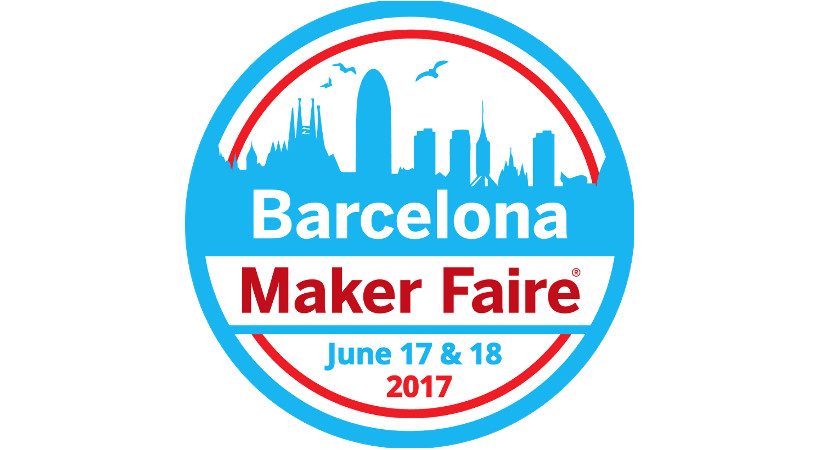Useful information
- Date
- Saturday 16th June 2018 — Sunday 17th June 2018
- Opening hours
- 12:00am — 11:59pm
- Venue
- Pavelló Italià
- Location
- Plaça de Carles Buïgas, 8 8038
- Price
- Free
About the event
Maker Faire Barcelona
In 2007, half of the world’s population lived in cities; in 2050 it is expected to be two thirds.
Despite occupying today, only 2% of the land surface, cities are responsible for 67% of energy consumption (WEO); 70% of waste generation; of more than 75% of greenhouse gas emissions; (UNEP); they have a strong dependence on the exterior and import resources such as water, building materials, energy or food…
Who we are?
Maker Faire is a gathering of fascinating, curious people who enjoy learning and who love sharing what they make. From engineers, to artists, to scientists, to crafters, Maker Faire is a meeting place for these “makers” to show experiments, projects and innovations.
We call it the Greatest Show (& Tell) on Earth – a friendly showcase of invention, creativity, and resourcefulness. Glimpse the future and get inspired!
Maker Faire is a hands-on visual feast of invention and creativity and a celebration of technology, arts, craftsmanship, science, and the Do-It-Yourself (DIY) culture. It’s for innovative, creative people who like to tinker and love to create, and also for those curious minds who want to see what new and innovative things are just around the corner… and get hands-on!
Who are Makers?
Makers range from high-tech robotics teams and geeky coders, to traditional artisans and intricate crafters, to excellent scientists, to garage tinkers. The Maker Movement rose in response to shrinking practical arts and technical programs in schools, the prolific rise in accessible technology, and a disconnect between people and the products they use in everyday life.
It’s about embracing curiosity and getting hands-on with practical arts and innovation. In truth, everyone is a maker – some just haven’t realized it yet. Makers are people who see the possible and then make it happen. It’s good for self-esteem, it’s good for education, and it’s good for economic development. Our goal is to bring as many Makers together to celebrate the multifaceted fields of making and celebrate it! Become a part of the Maker Movement!
Maker Faire’s Thematic Areas
Food: Feeding the growing urban population in a sustainable and healthy environment is undoubtedly one of the most important challenges of the 21st century. Can urban agriculture and local food production be part of the solution?
Energy & Mobility: 67% of the global primary energy demand and 75% of the total CO2 emissions originate in cities. How can we promote a decisive transition towards renewable energies and a circular economy?
Urban mobility represents almost two thirds of all the kilometers traveled by people. In response to these trends, the urban distance traveled could triple by 2050. How can mobility challenges be addressed to achieve more ecologically friendly urban spaces with respect to pedestrians?
Advanced Manufacturing & Industry 4.0: Advanced manufacturing technologies provide an unprecedented opportunity to support local production. How can advanced manufacture & industry 4.0 reformulate the way cities produce and consume?
Health & Environment: The collaboration between the sectors of planning, transport, environment and health, is essential to address the problems posed by the urbanization focusing to health and for the benefit of citizens. What are the strategies and tools to promote a healthy and sustainable urban development?
Education & Longlife Learning: Scientific and technological progress is rapidly changing the skills and competencies needed to address the kind of situations and challenges that women and men, children and young people will encounter in the life and work of the 21st century. What does it take to awaken passions and tune learning to the real world? A space of discovery, transversal and participatory for all.
Space Exploration (Sónar 2018 25Y): In 1972, Apollo 17 left for the Moon and since then, we have not returned. With the advanced today, is it time to return? For our return to the Moon to be truly sustainable, we should make use of lunar resources and convert autochthonous lunar material into oxygen and water. Would it be a good idea to build a lunar village? Or a link station?
